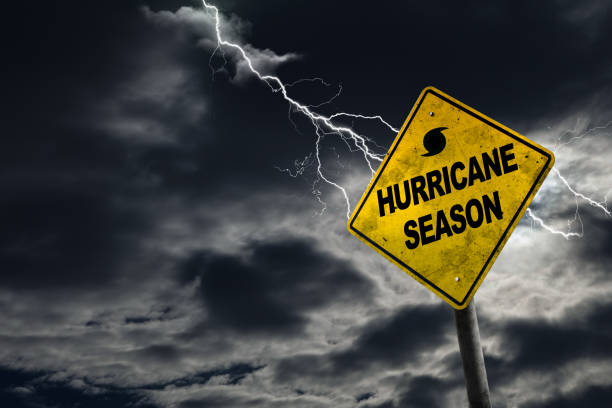
Charleston’s beautiful coastline is one of its most attractive features—but it also places the city in the direct path of Atlantic hurricanes. Hurricane season in Charleston runs from June 1 to November 30, with the greatest risk of landfall between mid-August and mid-October. While not every storm brings severe damage, even tropical systems can cause flooding, high winds, power outages, and dangerous storm surge. Whether you’re a full-time resident or an investor with rental property, it’s critical to understand what to expect during hurricane season and how to prepare.
1. Know Your Evacuation Zone and Shelter Plans
Charleston County is organized into evacuation zones A through I, designed to help emergency officials manage large-scale evacuations based on a storm’s severity. These zones are determined by elevation and storm surge risk. Zone A, which includes coastal and low-lying areas like Sullivan’s Island, Isle of Palms, and parts of downtown Charleston, is the first to be evacuated during major storms. If you’re unsure which zone your home or rental falls into, check Charleston County’s official maps and guides each season, as these can be updated.
Shelter options include public hurricane shelters and pet-friendly facilities, but space is limited and typically reserved for those who cannot travel elsewhere. As a property owner or tenant, it’s wise to plan alternative arrangements early—this might include booking inland hotels or staying with friends in higher elevation areas. For seniors or those with medical needs, consider pre-registering with emergency services or special medical needs shelters if available.
2. Plan Your Evacuation Route Ahead of Time
In Charleston, major evacuation routes include Interstate 26 (I-26), Highway 17, and I-526, which connect coastal areas to inland South Carolina. During a declared evacuation, these routes may be converted to one-way outbound (contraflow) traffic to improve the flow of people leaving the coast. Bright blue hurricane evacuation route signs are posted along these roads to guide you.
To avoid traffic congestion and hazardous weather conditions, plan to leave as early as possible once an evacuation is announced. If you rely on public transportation, CARTA buses offer evacuation assistance, including special routes and pet transport, but services stop 24–36 hours before landfall. Gas stations may run out of fuel, and roads can become flooded or blocked, so having your vehicle serviced and ready with a full tank is essential.
3. Secure and Fortify Your Property
Protecting your property in advance of a storm is one of the most important steps you can take. Begin with an exterior inspection of your home. Reinforce or repair loose shingles, siding, and gutters. Install or secure storm shutters on windows and glass doors. If shutters aren’t available, use 5/8-inch exterior-grade plywood to board up windows and prevent damage from flying debris. Trim back trees and shrubs, and store outdoor furniture and equipment inside to prevent them from becoming projectiles during high winds.
For flood-prone areas, place sandbags around doors and low openings. Review your homeowners or rental insurance coverage to ensure you have adequate flood insurance, especially if you’re in a FEMA-designated flood zone. Flood damage is not typically covered under standard policies. Property managers can often coordinate professional hurricane preparation services for absentee owners.
4. Stock Up on Emergency Supplies and Create a Plan
Every Charleston household should maintain a 72-hour hurricane supply kit during storm season. Essentials include bottled water (one gallon per person per day), non-perishable food, flashlights, extra batteries, a battery-powered radio, medications, cash, important documents, and first aid supplies. If you have pets, include food, carriers, vaccination records, and comfort items. Households with young children or elderly members should consider extra items like diapers, special medications, or medical equipment.
Develop a family emergency plan that includes meeting points, contact lists, and designated evacuation destinations. Make sure everyone knows how to reach one another if communication lines are down. Place important documents—such as birth certificates, insurance papers, and property deeds—in waterproof containers or digital backups. If you rent or manage vacation properties, consider leaving a laminated checklist for guests to follow in case of a weather emergency.
5. Work with a Property Management Company for Peace of Mind
One of the smartest ways to protect your Charleston property during hurricane season is by working with a local, experienced property management company. Property managers can act quickly when storms approach by securing outdoor items, checking shutters, shutting off utilities, and performing pre-storm inspections. After a storm passes, we can assess your property for damage, document any losses for insurance claims, and coordinate repairs—often before you’re even able to return to town.
Property managers also play a vital role in tenant communication. We provide timely updates to residents and guests, ensure evacuation instructions are followed, and handle emergency maintenance requests when safe to do so. With a team on the ground, property owners can avoid the stress of flying in, making last-minute calls, or coordinating contractors after a storm. Investing in property management services is not just a convenience—it’s a layer of protection and peace of mind when the weather takes a turn.
Hurricane season in Charleston doesn’t have to be overwhelming when you’re well-prepared. Knowing your evacuation zone, securing your home, stocking emergency supplies, and working with a local property management team can make all the difference. Whether you’re a full-time homeowner or own rental property in Charleston, proactive planning will help you weather the storm—literally and financially. Need help preparing your home or rental property for hurricane season? Our team is here to help you plan, protect, and respond with confidence.
